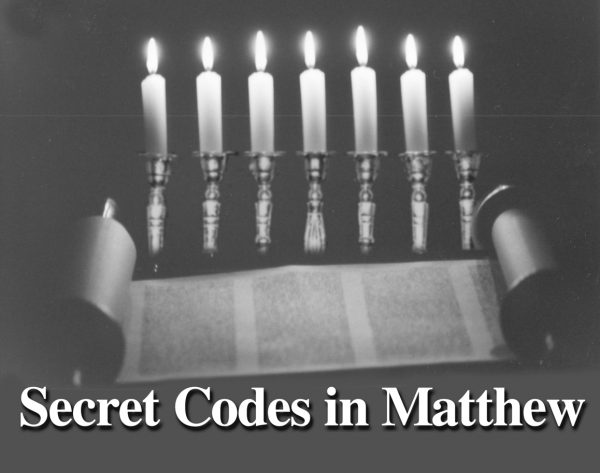The Secret Codes in Matthew: Examining Israel’s Messiah, Part 13: Matthew 17:10-21, by Kevin M. Williams
What does the coming of Elijah and the casting out of demons have to do with showing Jesus as Messiah? Journey through the Gospel to the Hebrews with Kevin Williams and find out.

And His disciples asked Him, saying, “Why then do the scribes say that Elijah must come first?” And He answered and said, “Elijah is coming and will restore all things; but I say to you, that Elijah already came, and they did not recognize him, but did to him whatever they wished. So also the Son of Man is going to suffer at their hands.” Then the disciples understood that He had spoken to them about John the Baptist (Matthew 17:10-13).
In the previous issue of the Pneuma Review, we looked at the mount of transfiguration in much greater detail and how the Jewish elements surrounding the event might have been interpreted by the disciples. We also saw that Yeshua’s (Jesus’) final word on the experience was “Tell the vision to no one …” (Matthew 16:9). This is curiously followed with one of disciples asking, “Why then do the scribes say that Elijah must come first.”
As this was some of their conversation back in Matthew 11:11-14 and is by now what we might call “old news” we may rightly wonder, “Why are they asking this when Yeshua said it was not to be discussed?”
There may be several options as to why this question surfaced. Most notably, they were just coming down the hilltop where Moses and Elijah had appeared with Yeshua. The text tells us that only Peter, James, and John were there and that Yeshua had commanded them, “Tell the vision to no one until the Son of Man has risen from the dead” (Matthew 16:9).
The opening of our passage above “And His disciples asked Him …” does not give anyone’s specific identity, yet imagine you are Peter, James, or John, having just witnessed the very presence of Elijah when one of your peers asks this question! The knowing glances that passed between the three of them must have been remarkable!
It is possible that the question came from one of the three—hoping to draw the experience with Yeshua out for the other disciples to hear (and in this cunning way, not break Yeshua’s commandment to remain silent).
Or, perhaps the passage from Malachi 4:5-6 “Behold, I am going to send you Elijah the prophet before the coming of the great and terrible day of the LORD” had been a part of the prior or approaching Haftarah (prescribed Sabbath reading) and was on the forefront of their minds.
Category: Biblical Studies, Pneuma Review, Spring 2004


